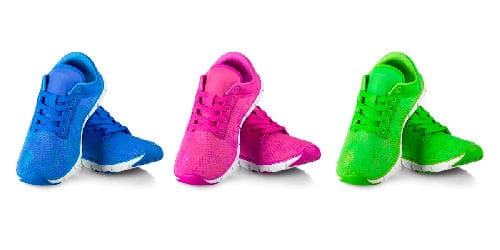Focus on Health & Wealth: Get Younger Next Year
(This page may contain affiliate links and we may earn fees from qualifying purchases at no additional cost to you. See our Disclosure for more info.)
If you’re guilty of spending most of your free time overcoming the challenges of working your new business, hustling at a side-gig, or doing everything you can to stop living paycheck to paycheck, you might be missing something just as important as money.
Your health.
Taking the stairs at work and trying new healthy recipes each week are steps in the right direction. But if you are really honest with yourself, are you taking better care of your body or your wallet?
Maybe you’re young enough that you’re putting health on the back burner right now. Once you pay off your debt or reach a specific net worth milestone, you can then shift your focus to your health.
If 40 is the new 20, what do you have to worry about, right?
Wrong.
Let us introduce you to a revolution. And before you click off the page – don’t worry! You don’t have to buy any cleanses, special pills, or machines giving you super abs by working out just a few minutes each day.

Instead, you’ll take away sound advice from a book by Chris Crowley, an 85-year old who still skis on black diamond runs, and his Columbia-trained physician – Dr. Henry (Harry) Lodge, and Harvard-educated neurosurgeon, Allan J. Hamilton, MD.
You can probably get the first edition (2005) of this NY Times Bestseller at your local library. It’s a great way to save money and learn more about improving your wellness.
But, Younger Next Year was updated in December of 2019 and includes two new chapters with information on a topic that’s incredibly important to aging adults – brain health.
According to the Alzheimer’s Association, more than 5 million Americans are living with Alzheimer’s dementia. And the number of people suffering is growing each year.
But there is now mounting evidence that we can take action to boost brain function and work to avoid mental decline as we age.
In addition to working out and watching what we eat, we need to work to get “Smarter Next Year” now too. This involves serious workouts for your body and brain.
Welcome to the 2nd Edition of Younger Next Year

If you think you’re too young for this book, think again!
According to Harry, “We start to age by the end of our 20’s, so once you turn 30, the quality of your life is up to you.”
When you’re busy taking control of your finances, saving for the future, giving your kids a great life, or helping care for your aging parents – you may have lost focus on how important it is to take care of you.
Maybe you think it’s too late to do anything about your health. Or that it’s normal for your health to fail as you age.
Chris would tell you that we all need to drop the idea that “normal aging” (and decay) is normal. A decline in health until death can be averted until close to the end of life for many people – if they make important lifestyle changes.
Reading Younger Next Year explains what you can do to “turn back the clock” and hopefully live a long and healthy life.
Recommended: What Can You Accomplish In A Year?
Quotes, Key Takeaways, & Aha Moments
Rather than giving away too much of the book, here are ten highlights that have helped me change behaviors and stay focused on getting Younger Next Year every day.
1. “One of the great risks of our age is living far longer than we can live well.”
The average life expectancy is almost 79 in the United States but if a man lives to age 65 now, on average – they expect to live to 84. Women who live to be 65 now can, on average, expect to live to almost 87.
Harry and Chris explain that “You are stuck with aging, but decay is optional. You can get decrepit if you like, but you are not likely to die – you are likely to live like that for a long, long, time.”
Younger Next Year can help you learn how to avoid living for many years with a poor quality of life.
2. Caring, connecting, and committing are just as crucial to our health as what we eat and how much we exercise as we age.
While it’s important to take care of yourself, you also need to connect with and support others as you get older. Family may come first, but close friends and community matter too.
When you make time for and get involved in activities meaningful to you, you’ll also benefit from your efforts.
3. Show up every day but take it at your own pace. You’ll make progress, and that's what matters.
To “swim against the tide of aging” – you don’t have to be perfect. But you have to get started and commit to exercise, better nutrition, and challenging your mind if you want to fight off decay.
The Younger Next Year “rules” aren’t a quick fix – they are changes to your lifestyle.
4. Weight training is serious therapy to halt or reverse the ravages of aging. It also helps prevent falls. Aerobic exercise saves your life; strength training makes it worth living.
If you want to avoid the “ravages of aging” as much as possible, you have to include strength training in your workouts a few times each week.
Don’t make the mistake of thinking you have to join a gym. Or go out and buy expensive weights or equipment either. You just have to decide that it matters enough to do it – and then, get it done.
5. Spend less than you earn. You can’t start thinking about this too soon. Money problems create anxiety, and that won’t help you be healthy
Find a balance between the time you spend working to earn money to pay off debt, save, and invest, and the time it requires to take care of yourself.
Doing one without the other doesn’t make sense. Stressing out over money hurts your health and can negatively impact relationships with the people you care about most.

6. Exercise and quit eating crap. This is your new lifestyle, and you're going to live for a long time. Thin will take care of itself.
For once, you don’t have to worry about the scale. If you can commit to this lifestyle (not diet), you'll eventually get to a natural, more healthy weight.
If you are looking for more information about healthy eating, give Thinner This Year a read. It’s another book in the Younger Next Year series.
7. People spend hours watching TV (often alone) where characters live rich, connected lives but they miss out on connecting with their own family and friends. You have to WORK at connecting.
If you're still working a 9-5 or have kids at home, you probably connect with others on a regular basis. But if you’ve retired or live in an “empty nest” – you may end up spending a lot more time than you imagined sitting in front of the TV.
If you're an extrovert, you may not find it difficult to join others and stay social. But defaulting to “yes” may need to become a habit for you if you tend to turn down invitations to do things with others as you age.
8. Most of us gave up far too much for success (in our jobs) and got back far too little in quality of life.
You’ve probably heard that one of the regrets of the dying is that they wished they'd enjoyed life more and not worked so hard.
You may not think much of that as you're busy climbing the corporate ladder or growing your business. But remember your quality of life matters at 35 as much as it does at 85.
9. 70% of normal decay associated with aging can be delayed almost until the end of your life and over 50% of illnesses and injuries in the last third of life can be eliminated with YNY lifestyle changes.
You may have the mindset that “you get older and things just slowly (or sometimes quickly) get worse” and that the downward slope of declining health is what everyone faces until you die.
But it doesn’t have to be that way for many people!
A Younger Next Year lifestyle doesn’t protect you from all decay, illness, and disease but it certainly can help you feel better, younger, and live an active and happier life for many years.
Sadly, terrible illnesses do still happen. Dr. Harry Lodge (co-author) died from prostate cancer in 2017 at the age of 58.
Only you can decide if it’s worth it to chance living through decades of your life in poor health because you might die younger than most.
10. You have a tremendous amount of control over how well your brain works as you age. Mental decline is not inevitable.
You can actively challenge the notion that your mental fitness will decline with advancing age. But reading, doing puzzles, or using “brain training” apps on your phone probably aren’t enough.
Brain science says, to sustain neuronal health, we need to make our brains “sweat” by doing hard mental work. This could include things such as writing, taking classes, or learning an instrument or language.
Other Books in the Younger Next Year Series
- Younger Next Year For Women
- Thinner This Year
- The Younger Next Year Back Book: The Whole-Body Plan to Conquer Back Pain Forever
- Younger Next Year: The Exercise Program: Use the Power of Exercise to Reverse Aging and Stay Strong, Fit, and Sexy
Why Not Get Younger Next Year?
No matter your age, Younger Next Year principles can make a difference in your life. If you can’t commit to following Harry’s 7 “rules” at this time – following a few of them is a good start.
Understanding the importance of “swimming against the tide of aging” and prioritizing your health is the real win!
If you want to learn more and connect with over 1200 people from around the world who are trying to get Younger Next Year, visit the public Facebook page – Younger Next Year 2021.
It’s a wonderful group of people who share articles, ask questions, support one another all while working toward personal wellness wins!
Article written by Vicki, Co-Founder of Women Who Money
